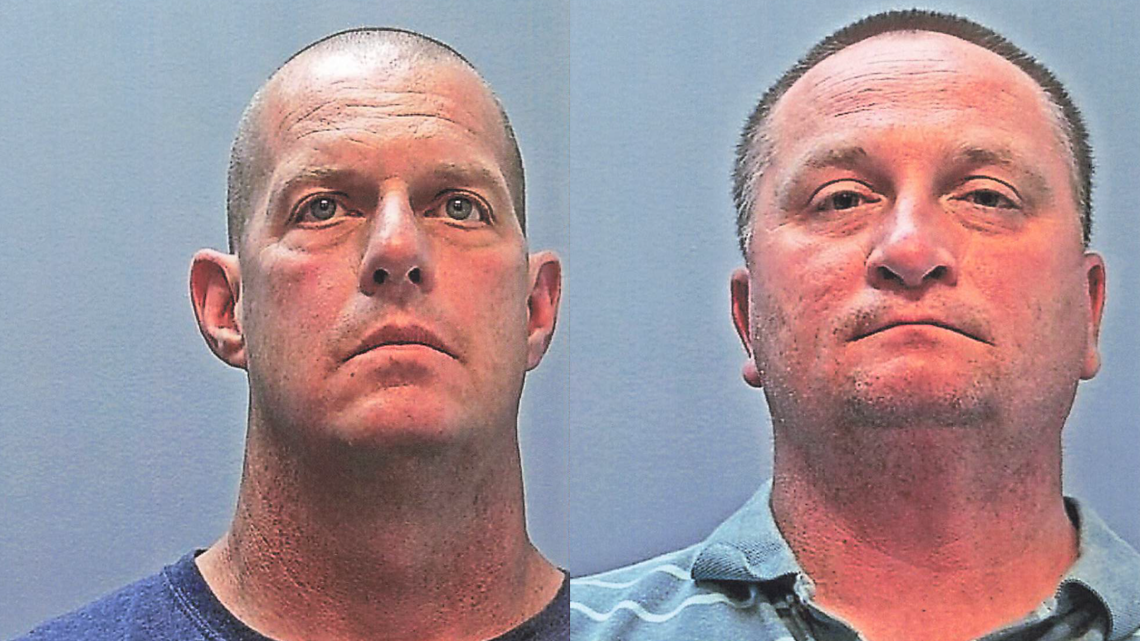AURORA, Colo. — A forensic pathologist who testified for the defense in the trial of two paramedics charged in Elijah McClain's death told jurors Thursday that he believed McClain died from a lack of oxygen to his brain — and concluded that his manner of death was "accidental."
"Were you able to form an opinion, to a reasonable degree of medical certainty as to whether or not ketamine caused or contributed to the death of Elijah McClain?" asked defense attorney David Goddard.
"Yes, I don’t believe it had any effect in this situation,” replied Dr. Ljubisa Dragovic, a forensic pathologist who asked to review records, videos and reports related to the case.


Aurora Fire Rescue paramedics Jeremy Cooper and Peter Cichuniec are each charged with reckless manslaughter and assault related to McClain's death. They injected the 23-year-old with ketamine on Aug. 24, 2019, after he was in a struggle with three Aurora Police officers. His heart stopped and he later died.
McClain was walking home when officers contacted him after a 911 caller reported a suspicious person wearing a ski mask.
During the struggle with officers, McClain was put in a carotid neck hold which caused him to lose consciousness briefly. He also vomited into the ski mask he was wearing, according to court testimony.
Dragovic said on the witness stand that he believed McClain's cause of death was anoxic encephalopathy — essentially a lack of oxygen to the brain which led to cardiac arrest.
He said McClain's brain damage was caused by the large amount of fluid he had inhaled into his lungs during the struggle with officers.
"The lungs clearly demonstrated — by microscopic slides and description — and photographs provided — evidence of massive aspiration — likely regurgitated gastric content," said Dragovic. "With such severe impairment to breathing, this resulted in a heart attack, cardiac arrest, stoppage of the heart."
Dragovic's conclusions about McClain's cause and manner of death contradict the findings of two other medical experts who testified previously — one who conducted McClain's autopsy for the Adams County Coroner's Office and one who testified on behalf of the prosecution.
Dr. Stephen Cina, with the coroner's office, initially said McClain's cause and manner of death were both "undetermined." In an amended autopsy report, written after he was able to review body-worn camera footage, he concluded that ketamine contributed to McClain's death. Dr. Roger Mitchell, who testified Wednesday, listed McClain's cause of death as "complications following acute ketamine administration during violent subdual and restraint by law enforcement and emergency response personnel."
Mitchell said he concluded that McClain's death was a homicide. Cina left McClain's manner of death as undetermined.
Defense attorneys began their case Thursday morning with an ER doctor from UCHealth who told jurors that even though McClain got too much ketamine "it would not be a fatal concentration" of the sedative.
Dr. Kennon Heard spent the morning talking to jurors about ketamine and told them it is often the drug of choice — because it can provide respiratory protection.
"I would say breathing problems are distinctly uncommon," Heard said about ketamine. "That's one of the reasons that we select ketamine over another sedative is it's less likely to affect the patient's respiration."
However, in this case, McClain was given a dose much too large for someone of his size. He was injected with 500 milligrams - a dose meant for someone weighing roughly 80 pounds more than him.
Heard conceded it was an overdose by definition because McClain got more than the recommended dose under the protocols for Aurora Fire, but said he didn't believe it was a fatal dose.
He pointed to the blood concentration level which was measured at the hospital about 39 minutes after McClain got the ketamine.
"It's much lower than the concentrations that have been reported in the vast majority of fatalities. And it's very difficult to say what a fatal concentration is because that's obviously not something we can study scientifically," Heard said.
"What we end up with is reports of patients who presumably died from a ketamine poisoning and then we have those blood concentrations. And it's lower than those but there's not like a specific number that we can point out and say, oh, this is clearly a fatal concentration."
On cross-examination, prosecutors noted that the "peak concentration" of the drug occurs about 20 minutes after injection.
"So is it fair to say, although we can't predict the number, that Mr. McClain definitely would have had a higher blood concentration before he got to the hospital and when the blood was drawn?" asked prosecutor Jason Slothauber.
"Yes, again it's always difficult to say, but I would say more likely than not," Heard replied.
Prosecutors have argued that the medics didn't assess McClain before giving the drug, and multiple witnesses have testified that they saw no medical reason for him to get it.
Those experts testified that, based on the video they had viewed, McClain was suffering from a series of medical issues related to his struggle with officers. They included hypoxia, or a lack of oxygen, and acidosis, or a build-up of acid in the blood. He had also inhaled vomit into his lungs. All of those things, experts said, made him more vulnerable to ketamine.
Heard testified that having acidosis wouldn't necessarily mean that ketamine should never be given or considered.
"If you have a patient who is severely agitated then they're going to have a high level of acid in their blood — or what we would call acidemia," he said. "Certainly, it's not something you can measure — because when a person is very agitated and out of control you can't determine what their blood PH is, but there are a very large [amount] of experiences with ketamine use in the pre-hospital setting in patients who presumably had acidosis and the drug was used successfully."
Various medical experts for the prosecution pointed out a lack of monitoring of McClain before and after the drug was given.
"People can die after getting ketamine from the predictable side effects of ketamine if they’re not treated - and they don’t get the right interventions. Right?" questioned Slothauber.
"Yes," answered Heard.
"So when you say this wasn't an overdose that you would expect to kill him, you just don’t expect it to outright cause a poisoning. Fair?"
"That's fair," Heard agreed.
On Thursday, Judge Mark Warner dismissed two counts against each defendant. They included second-degree assault with a deadly weapon and a sentence-enhancing count also involving a deadly weapon. That came after defense attorneys successfully argued that the drug — ketamine — could not be considered a deadly weapon.


The paramedics are the last two of the five men indicted in McClain's death to go to trial. In the first trial, a jury returned a split verdict for Aurora officers Randy Roedema and Jason Rosenblatt. Roedema was found guilty of criminally negligent homicide and third-degree assault and will be sentenced in January. That same jury acquitted Rosenblatt of all charges.
A separate jury acquitted Aurora officer Nathan Woodyard. Following his acquittal he was eligible to return to Aurora Police, and in late November the city confirmed he elected to reintegrate with the department and was on restricted duty.
SUGGESTED VIDEOS: Elijah McClain death

